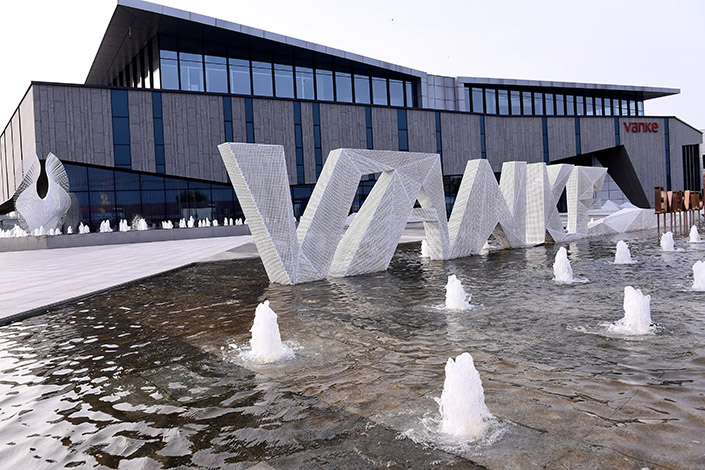Property Development Glory Days Are Over, Vanke Says, as It Hypes Services

China Vanke Co. Ltd. (000002.SZ) has said it will give more weight to real estate management and services, as the country’s largest property developers tweak their business models to bolster profitability amid tighter government restrictions on borrowing.
The move heralds a shift away from the Hong Kong- and Shenzhen-listed firm’s focus on real estate development and toward a multi-pronged approach that balances other sides of its business, executives said at Vanke’s annual general meeting on Tuesday.
“It’s getting harder to make money from the development business,” said Vanke’s president and CEO Zhu Jiusheng at the shareholders’ meeting. But the company’s property management and services businesses needed to make breakthroughs in concepts, technology and implementation methods, he said.
China’s largest developer by market value is trying to ease its reliance on its core property development business amid heightened official scrutiny. It is also working with an adviser to prepare for a potential $2 billion listing of its management arm in Hong Kong.
Since suspending unproven new ventures in 2018, Vanke has consolidated its core business around real estate development, giving secondary importance to other interests including property services, logistics and storage.
But the development-oriented strategy has clashed with government rules issued last year known as the “three red lines,” which slapped new borrowing limits on some of the biggest property firms in a highly indebted property sector that accounts for around 29% of China’s economic output.
Vanke has also grappled with lower profitability, partly due to rising land prices. The company’s development arm accounted for 96% of total revenue last year, but saw its gross profit margin fall 4.6 percentage points to 22.6%, while its fully diluted earnings on assets also declined 2.2 percentage points to 18.5%.
“Vanke should no longer be greedy and nostalgic for the high-margin real-estate era of the past,” said Yu Liang, Vanke’s chairman of the board. “For this reason, Vanke must shift from its real estate headquarters to its group headquarters and put its efforts into transformation and development.”
“In the past, the key to (property) development was getting hold of the money, buying the right land, getting the product right and setting the right standards,” Zhu told the meeting. “But management-oriented services don’t make as much money, and customers’ needs are constantly shifting. We should make changes in our iteration cycles and in discerning the needs of customers.”
Property management and services both face the problem of low returns, Zhu added. “If you use an asset-light model, it’s not easy to increase revenue and profit. And if you use an asset-heavy model, the net income from operations depends on whether you can cover the cost of capital, otherwise it won’t create value for shareholders.”
The three red lines restrict access to financing for certain major property developers unless they have a liability-to-asset ratio of less than 70%, excluding advance proceeds from projects sold on contract; a net debt-to-equity ratio of under 100%; and cash holdings that are at least equal to short-term debt.
Developers have responded by slashing leverage, spinning off non-core assets and attempting to raise equity for their affiliates in an effort to shore up their balance sheets. The strategy appears to be working, with developers’ net borrowing turning positive in April for the first time in nine months thanks to having significantly less debt to pay back.
Despite failing to meet each of the red-line metrics last year, China Evergrande Group, the country’s most indebted developer, issued 8.2 million yuan in bonds that month, followed by Vanke, which issued 5.4 billion yuan.
Evergrande has since shown other signs that its short-term debt burden is easing. But concerns about its financial health persist, with Moody’s Investors Service downgrading the firm to a B2 rating this week, citing its “weakened funding access and reduced liquidity buffer given its large debt maturities in the coming 12-18 months.”
Contact reporter Matthew Walsh (matthewwalsh@caixin.com) and editor Flynn Murphy (flynnmurphy@caixin.com)
Read more about Caixin’s economic indexes.
Download our app to receive breaking news alerts and read the news on the go.
Get our weekly free Must-Read newsletter.









